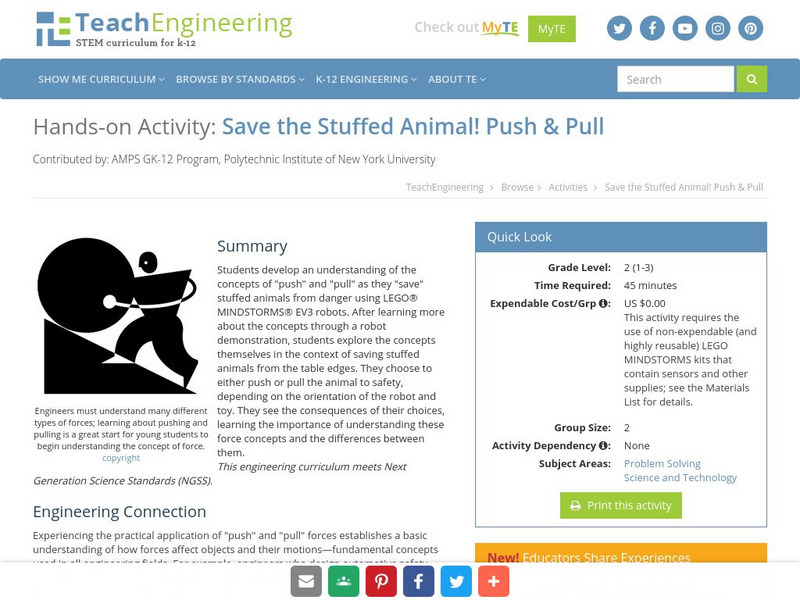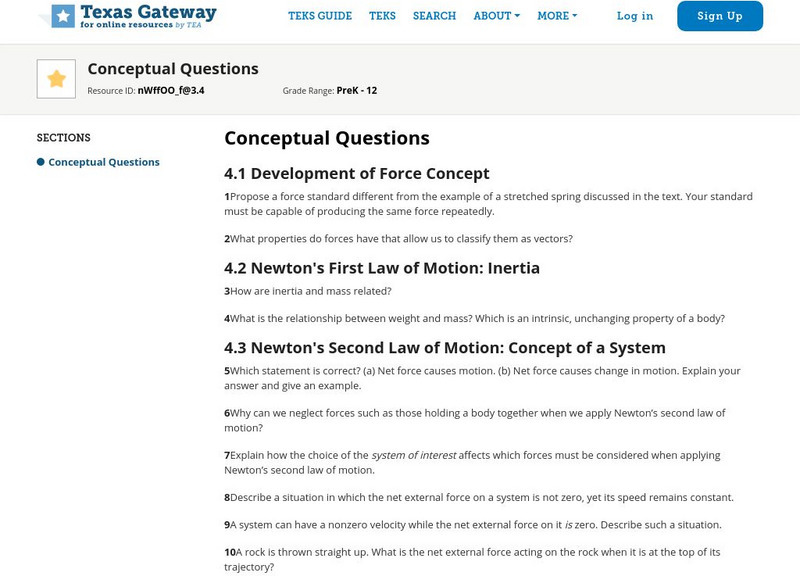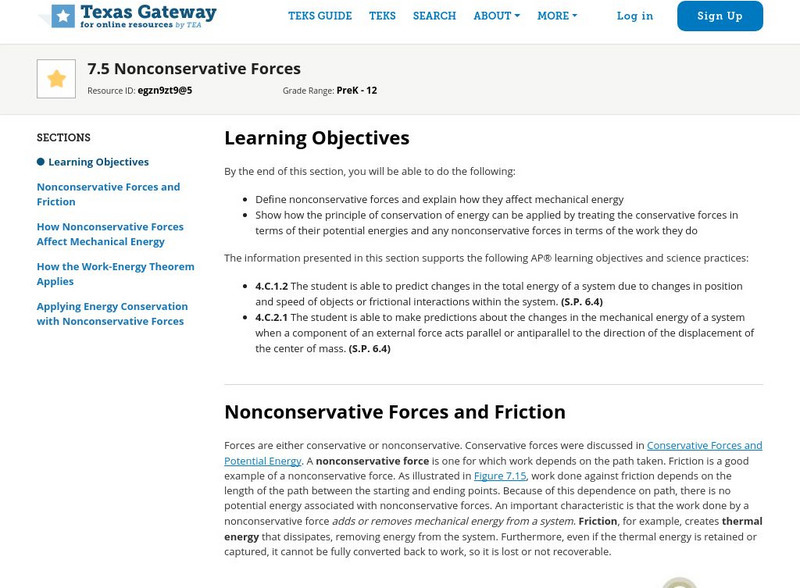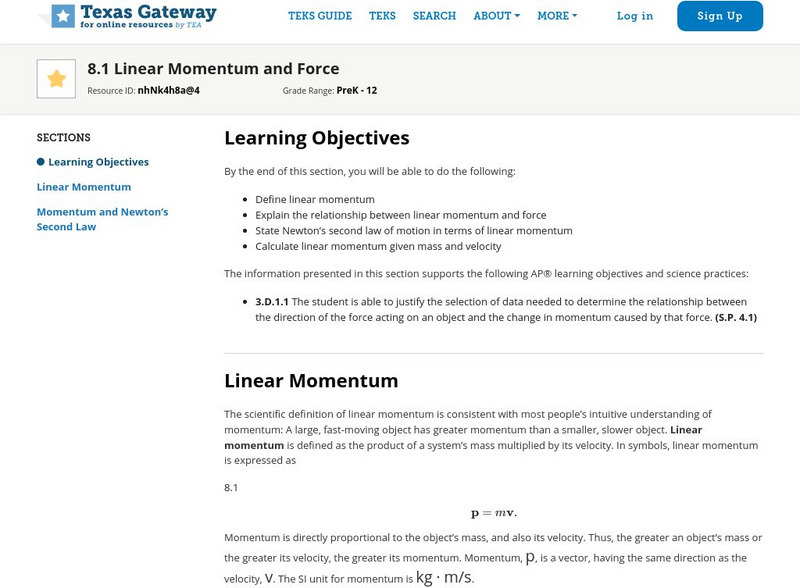Hi, what do you want to do?
TeachEngineering
Teach Engineering: Engineering Out of Harry Situations
Under the "The Science Behind Harry Potter" theme, a succession of diverse complex scientific topics are presented to students through direct immersive interaction. Student interest is piqued by the incorporation of popular culture into...
Georgia State University
Georgia State University: Hyper Physics: Earth Orbits
An equation for the law of universal gravitation is stated. The weight equation (W=m*g) is related to the law. An interactive JavaScript form allows the user to practice determining the force of gravity and the acceleration of gravity...
Physics Classroom
The Physics Classroom: Determining the Net Force
Online classroom site explaining the concept of balanced and unbalanced forces. The site has examples and exercises for the student to review and try.
Science Education Resource Center at Carleton College
Serc: Investigating Motion With Marbles
In this guided inquiry activity, students will use 2 marbles of different size and a box to investigate what makes the marbles move and what will cause the marbles to change speed and direction.
Science Education Resource Center at Carleton College
Serc: Torpedo Designing Contest
In this combined Chemistry and Physics lab, students investigate how to create pipette torpedoes that will be propelled using the chemical reaction of baking soda and vinegar.
Discovery Education
Discovery Education: Motion, Forces, Energy and Electricity
Help your students understand motion and force through the construction of catapults.
E-learning for Kids
E Learning for Kids: Science: Indian Ocean: What Kind of Natural Forces Do We Recognize?
Learn about forces (push or pull), gravity, and friction in this module by training dolphins.
Texas Education Agency
Texas Gateway: Work and Force
Given descriptions, illustrations, graphs, or charts, students will contrast situations where work is done with different amounts of force to situations where no work is done, such as moving a box with a ramp and without a ramp or...
Texas Education Agency
Texas Gateway: Work Energy Theorem
Using diagrams, illustrations, and relevant data, students will calculate the net work done on an object, the change in an object's velocity, and the change in an object's kinetic energy.
Other
Rotational Dynamics
Excellent site explaining rotational dynamics including work. Site includes links to related topics.
Utah State Office of Education
Utah State Office of Education: Force, Energy, & Motion
A unit on energy, force, and motion presented with interactive and classroom activities. Students gain an understanding of weight, mass, potential and kinetic energy, sound, and heat with this engaging resource.
Physics Classroom
The Physics Classroom: Vectors and Direction
A complete lesson/tutorial on vectors. Learn about vector addition, vector resolution, vector components, and resultants. Numerous examples and learning exercises are provided.
CK-12 Foundation
Ck 12 Exploration Series: Simulations: Do You Weigh Less, Descending Elevator?
[Free Registration/Login Required] Learn about the effect of acceleration on force and gravitational force by measuring weight while moving up and down in an elevator in this simulation.
Other
Tech Museum: Building for the Big One [Pdf]
This resource presents a project where students design and build structures that can withstand an earthquake. The project can include an extension where students look at the factors of soil type and proximity to fault in their design....
PBS
Pbs Kids: Activities and Videos: Force/energy
Videos that accompany activities that are hands-on challenges that focus on the engineering design process. They use simple materials, allow for multiple solutions, and are ideal for ages 9-12.
Frostburg State University
Frostburg State University Chemistry Online: Viscosity and Paste
Describes the changes in viscosity when various amounts of force are applied to a Non-Newtonian liquid. Gives the example of cornstarch paste.
TeachEngineering
Teach Engineering: Save the Stuffed Animal! Push & Pull
Students develop an understanding of the concepts of "push" and "pull" as they "save" stuffed animals from danger using LEGO MINDSTORMS NXT robots. After learning more about the concepts through a robot demonstration, students explore...
Texas Education Agency
Texas Gateway: Force and Newton's Laws: Conceptual Questions
This page offers 27 questions to test students' knowledge of the major concepts in each section of Chapter 4: Dynamics: Force and Newton's Laws of Motion from the AP Physics online text.
Texas Education Agency
Texas Gateway: Force and Newton's Laws: Problems and Exercises
This page offers 57 problems/exercises based on the content of Chapter 4: Dynamics: Force and Newton's Laws from the AP Physics online text.
Texas Education Agency
Texas Gateway: Nonconservative Forces
By the end of this section, you will be able to define nonconservative forces and explain how they affect mechanical energy, and to show how the principle of conservation of energy can be applied by treating the conservative forces in...
Texas Education Agency
Texas Gateway: Linear Momentum and Collisions: Impulse
By the end of this section, you will be able to define impulse; describe effects of impulses in everyday life; determine the average effective force using graphical representation; and calculate average force and impulse given mass,...
Texas Education Agency
Texas Gateway: Linear Momentum and Force
By the end of this section, you will be able to define linear momentum, explain the relationship between linear momentum and force, state Newton's second law of motion in terms of linear momentum, and calculate linear momentum given mass...
Integrated Publishing
Integrated Publishing: Calculating the Horsepower Rating
Relates the horsepower rating seen on many motors to the energy and time requirements.
The Wonder of Science
The Wonder of Science: K Ps2 1: Pushes, Pulls, and Motion
Teaching students about pushes, pulls, and motion? Use this site to plan lessons for students to conduct investigations to compare the effects on the motion of an object when pushes or pulls come from different directions or strengths.





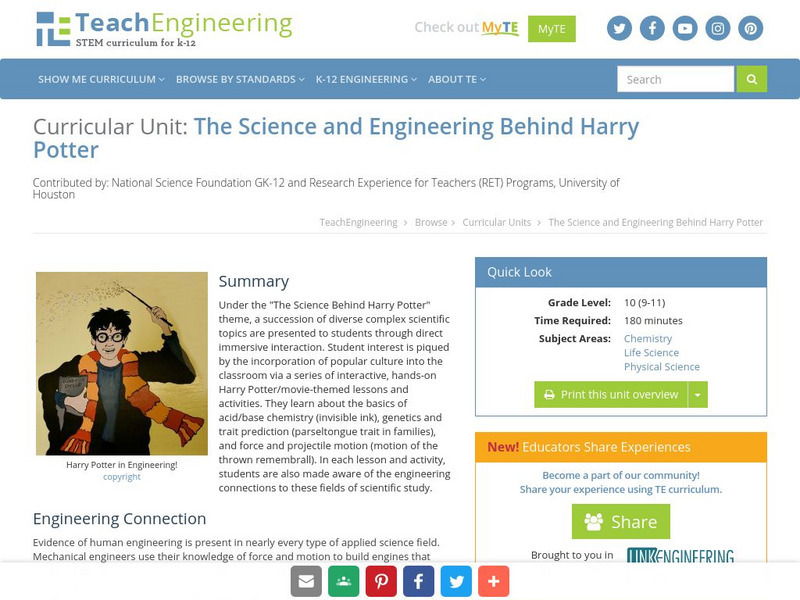
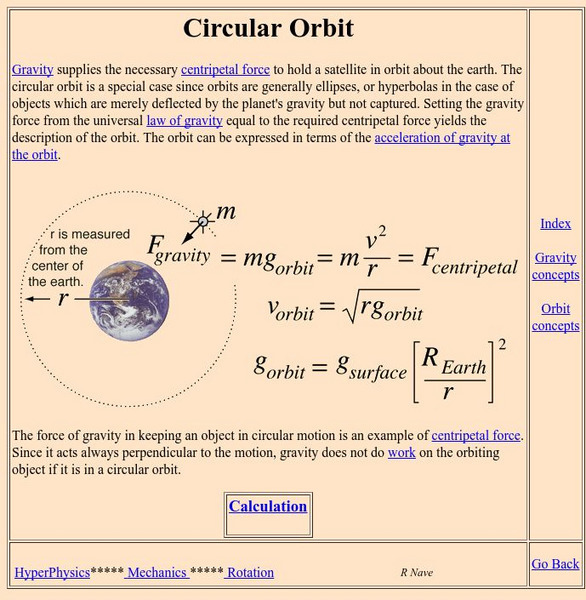


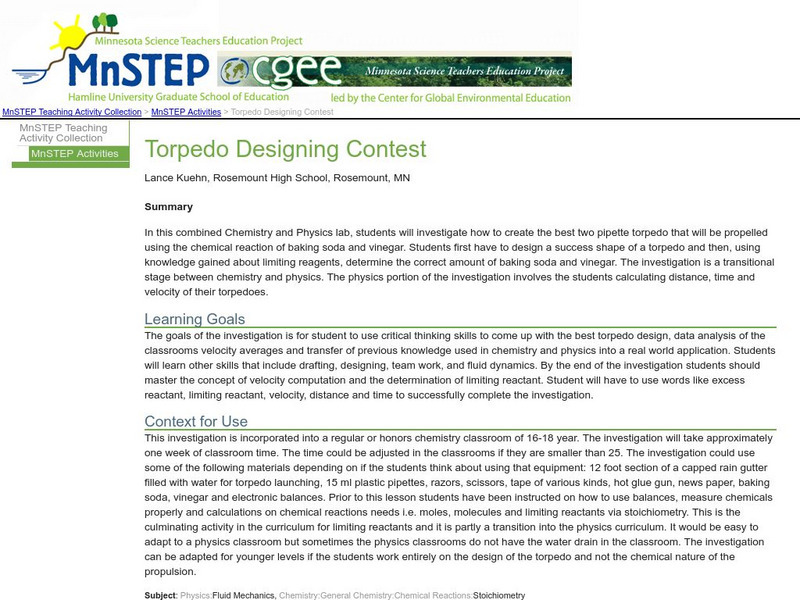


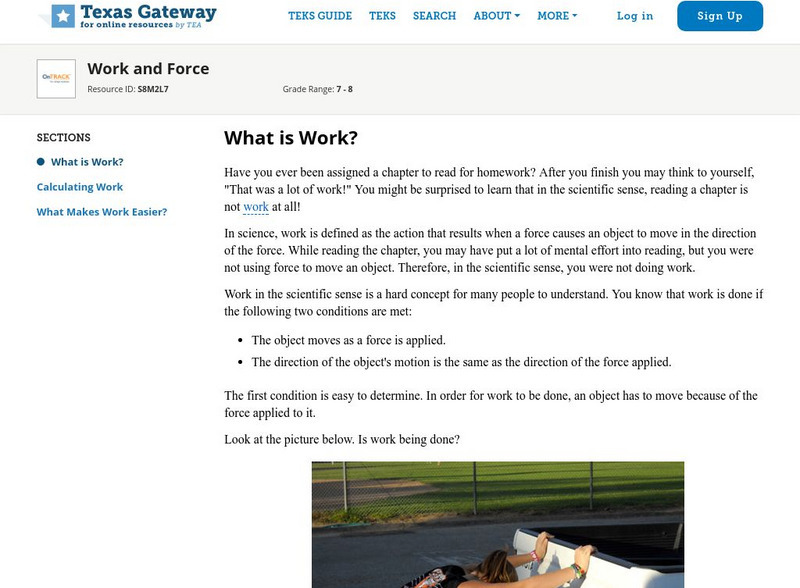


![Tech Museum: Building for the Big One [Pdf] Lesson Plan Tech Museum: Building for the Big One [Pdf] Lesson Plan](http://lessonplanet.com/content/resources/thumbnails/411264/large/bwluav9tywdpy2symdiwmduymc0xmdm2my0xd3vtenpxlmpwzw.jpg?1589993199)


